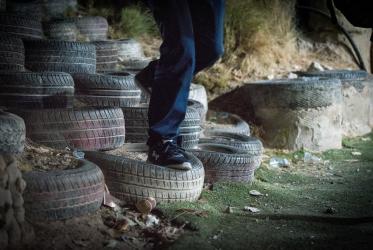Displaying 1 - 20 of 730
Voice of churches vital during UN women’s rights talks
28 March 2024
על ההחלמה להתחיל עם הילדים: “לאלו מבוגרים הם יהפכו?”
25 March 2024
מילים איתנות מצלצלות מן ההריסות
25 March 2024
كلمات الصمود يُسمع صداها من تحت الأنقاض
25 March 2024
Des mots de ténacité résonnent dans les décombres
25 March 2024
Stimmen der Standhaftigkeit inmitten der Zerstörung
25 March 2024
Entre los escombros resuenan palabras de firmeza
25 March 2024








